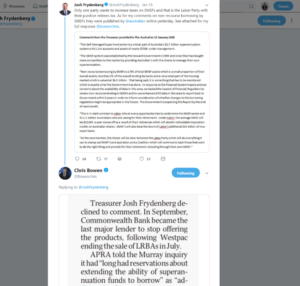

What else is on Labor’s super reforms radar?
So, what else is on Labor’s radar with superannuation should they come into Government? The following other measures form part of Labor’s changes if elected:
- Lowering the annual non-concessional contribution (NCC) cap to $75,000 (currently $100,000) – this would naturally also impact the application of the bring forward rule, reducing it from a maximum of $300,000 to $225,000;
- Further lowering of the High-Income Super Contribution threshold to $200,000 (currently $250,000) to apply Division 293 tax, effectively a 15% surcharge tax on concessional contributions received by a member;
- Abolish unused catch-up concessional contributions, which are actually to take effect from 1 July 2019 given the prospective nature of the legislation – i.e. can utilise any 2018/19-year unused concessional contributions from 1 July 2019;
- Reverse changes to tax deductibility for personal super contributions, which effectively re-introduces that 10% rule requiring a person to be substantially self-employed in order to be able to make concessional contributions; and
- Will look to increase SGC from 9.5% to 12%
The proposed franking credits reform
The most controversial change in Labor’s policy reforms is the proposed abolition of franking credit refunds, which would take effect from 1 July 2019. These law changes would allow for franking credits to offset any tax, but not allow for a surplus amount to be refunded to the taxpayer (including SMSF). Following initial backlash to this policy announcement we did see a softening by Labor on this policy in providing a ‘Pensioner Guarantee’ that protect pensioners from these changes and ensure that pensioners will still be able to access cash refunds from excess dividend imputation credits.
Under the ‘Pensioner Guarantee’ Labor has announced that every recipient of an Australian Government pension or allowance with individual shareholdings will still be able to benefit from cash refunds. This includes:
- Individuals receiving the Age Pension, Disability Support Pension, Carer Payment, Parenting Payment, Newstart and Sickness Allowance; and
- Self-managed Superannuation Funds with at least one pensioner or allowance recipient before 28 March 2018 will be exempt from these changes.
A potential change to the Transfer Balance Cap?
The other interesting piece to Labor’s super policy jigsaw is around the transfer balance cap. Back in 2014 when they set out their policy intentions, it was proposed (if elected) to introduce a $75,000 earnings threshold per member on pension phase income each year. Based upon an earnings rate of 5% this equated to a balance of approximately $1.5m. Interestingly, in the following budget we saw the Coalition introduce a transfer balance cap of $1.6m, which of course required a significant amount of change the existing income streams, in particular for SMSFs.
You’re probably wondering where I’m heading… well, whilst it would be unlikely for Labor to unravel the transfer balance cap measures, if in power they would be of course able to adjust the general transfer balance cap of $1.6m, potentially lowering it to where their policy setting was to be – i.e. $1.5m, or worse even lower. Now, before you get into a mad panic, it has been indicated that there would be no retrospectivity to any changes. Therefore, existing pensions at a higher cap would most likely be grandfathered.
It is worth noting that in Labor’s National Platform document, they have also indicated that it will review the interaction between superannuation and the age pension. This was something raised by the Productivity Commission in its report, Housing Decisions of Older Australians (Chapter 5)
For further information, you can view the ALP National Platform document that was drafted in April 2018 and was expected to be finalised at the National Policy Forum in December 2018:
https://www.alp.org.au/media/1276/2018_alp_national_platform_-_consultation_draft.pdf







